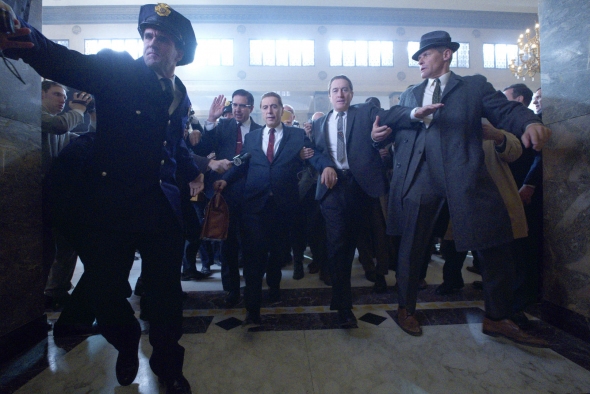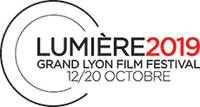Mafia
American stories
PostED ON OCTOBER 15 AT 11AM
Martin Scorsese returns to the subject of the mafia on a regular basis, as if driven by the need to breathe in the air, contaminated as it may be, like when he was a child in Little Italy. Though he has never worked for the organization, the Mafia tax, the shady looking guys in suits, the “Italianness,” the divvying up of territories and the bloody score settling all permeated his environment in a durable manner. A kind of state within a state with its codes, violence and mysteries, the mafia both frightens and fascinates us all, just as it fascinated Marty, who drew from it as inspiration to create his best films.
 The Irishman, by Martin Scorsese, Auditorium of Lyon, 7:15 pm
The Irishman, by Martin Scorsese, Auditorium of Lyon, 7:15 pm
It all started in 1973 with Mean Streets, with his soon-to-be lifetime allies, Robert De Niro and Harvey Keitel, who exploded on the screen and left more than a few drops of blood. A tale of the mafia narrated from the uncomfortable proximity of the neighborhood and sidewalk, Mean Streets is also the portrait of Johnny Boy, a young hothead gangster drowning in debt, but who lives a seemingly carefree existence- a guy who transgresses the rules of his environment by taking all the risks. A hidden self-portrait of the young filmmaker?
In Raging Bull, the mafia again serves as the backdrop, letting us in on the inner workings of the boxing business. De Niro and the astounding Joe Pesci succeed the De Niro/Keitel duo in a similar stance, between the "unmanageable" De Niro/La Motta and his partner, the more level-headed and realistic big brother.
The mafia returns front and center in Goodfellas, one of Scorsese’s greatest achievements. Like in Mean Streets, Marty creates the portrait of an outsider: Henry Hill (the extraordinary Ray Liotta), standing out because he is Irish, and because he attempts to play out his personal priorities, violating the rules of the organization. But unlike Johnny Boy, Henry is emancipated without fanfare, a nervous wreck, and the coke he ingests by the kilo hardly helps his paranoia.
Paranoia is also at the heart of Casino, a serious contender for Scorsese's ultimate masterpiece. Set in Las Vegas, Casino is also a saga about capitalism and the concealed movement of money, a metaphor for America projecting itself as a caricature of Disneyland. Casino is also a cruel love story. Scorsese is once again interested in a semi-outsider, Ace Rothstein, a high-ranking Jew on the payroll of the Italian organization. The question of trust is what will derail his relationship, his job and his life. Money, coke, sex, jealousy, brutality, the ultra-flashy artificial paradise of Vegas, along with rock ‘n’ roll and Bach's “Saint Matthew Passion” all come together to produce this explosive cocktail of a delirious movie.
From an alternate angle, the mafia is also present in Gangs of New York (not the mafia in the strict sense, but as a possible prototype in terms of organized urban violence) and in The Wolf of Wall Street, where one can see the financial community as a legal version of the mafia and point out the similarities between the figure of Jordan Belfort (the brilliant Leo Di Caprio) and his predecessors, played by De Niro or Liotta (like how Marty holds up a mirror between gangsters and police in The Departed).
Too much money, too much dope and too much absolute power will sooner or later lead to their demise; such is the path common to all (anti)heroes of these mafia films. We are now preparing ourselves to discover The Irishman, burning with anticipation, firstly, because the film reunites Marty’s historic gang (De Niro, Pesci, Keitel), reinforced by none other than Mr. Al Pacino (ever since the superb - but insufficient- minutes in Heat, we’ve dreamt of seeing Al and Bob, two monuments of the 1970s, on the screen), and additionally, because Scorsese plunges us into the troubled relationship between the mafia and truck drivers’ unions, a reflection of these "American diseases you’re better off having young," as Max/James Wood said in Once Upon a Time in America by Sergio Leone. Another story about the outsized arrogance and fall from grace of Jimmy Hoffa? Another story of America or even The Story of America? One thing is sure, The Irishman promises to be a paramount event of Lumière 2019.
Serge Kaganski

